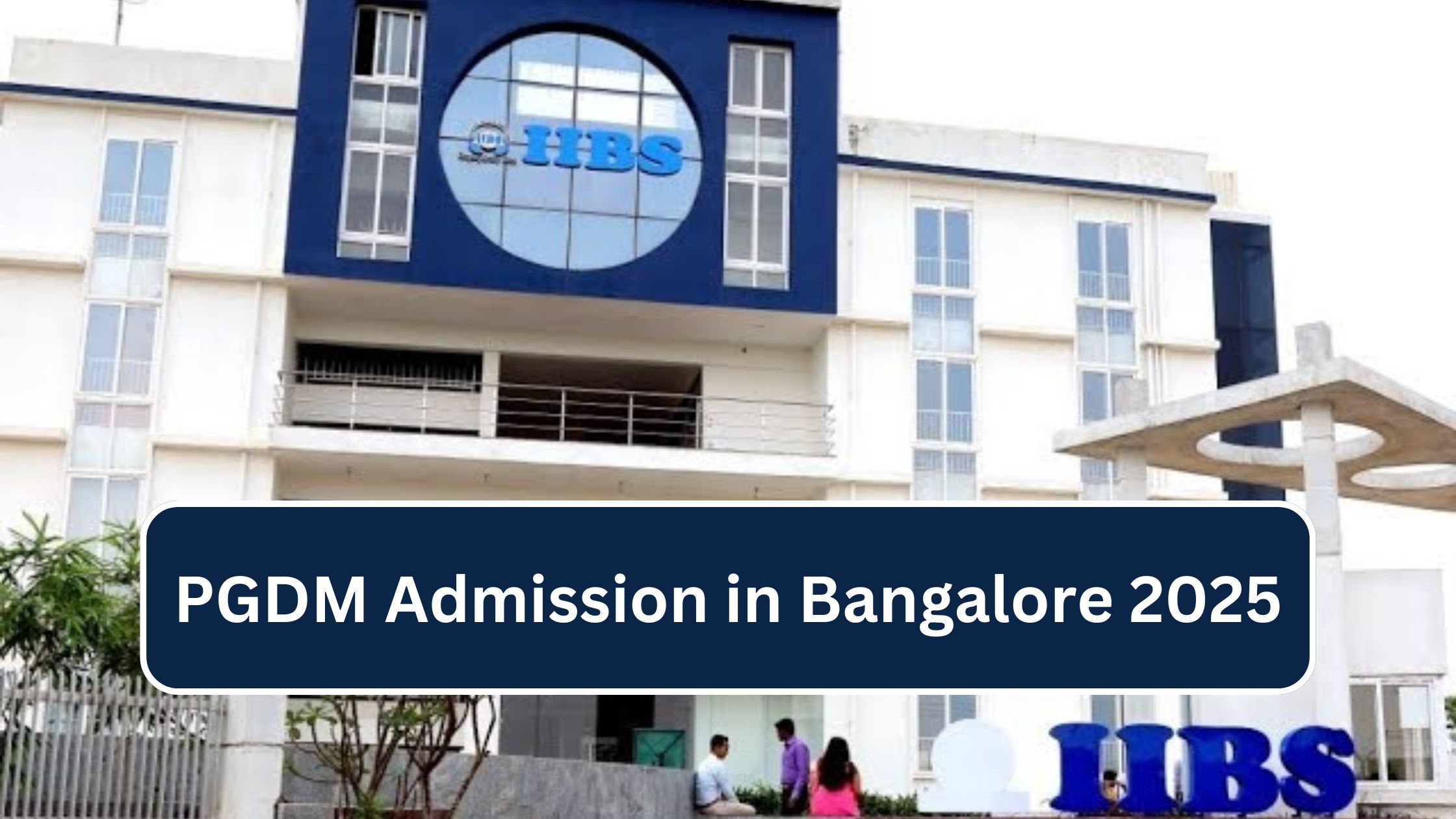Education Loan for MBA in India 2025: Eligibility, Requirements, and Insights
Pursuing a Master of Business Administration (MBA) is a dream for many aspiring students in India. However, the steep costs of tuition, accommodation, and other associated expenses often act as significant barriers. To bridge this gap, Education Loan For MBA for have become a popular choice for students aiming to achieve their academic and professional goals. This blog explores everything you need to know about education loans for MBA programs in India in 2025, including eligibility, requirements, types of loans, and additional insights.
Why Opt for an Education Loan for MBA?
MBA programs, especially in prestigious institutions, can cost anywhere between INR 10 lakhs to INR 25 lakhs or more. Alongside tuition fees, students also need to account for living expenses, travel, and miscellaneous costs. Education loans not only provide financial support but also offer the following advantages:
- Flexible Repayment Options: Most banks offer repayment tenures ranging from 5 to 15 years, ensuring students can manage repayments comfortably after securing a job.
- Moratorium Period: Students typically get a grace period (moratorium) before they need to start repaying the loan, which generally lasts until the completion of the course plus an additional 6–12 months.
- Tax Benefits: Under Section 80E of the Income Tax Act, borrowers can claim deductions on the interest paid on education loans.
- Improved Career Prospects: By enabling access to high-quality MBA programs, education loans indirectly enhance career opportunities and earning potential.
Types of Education Loans for MBA in India
- Secured Education Loans:
- Require collateral, such as property, fixed deposits, or other valuable assets.
- Offered by public and private sector banks.
- Lower interest rates compared to unsecured loans.
- Unsecured Education Loans:
- Do not require collateral.
- Offered by private banks and Non-Banking Financial Companies (NBFCs).
- Slightly higher interest rates.
- Specialized Education Loans:
- Tailored for students pursuing MBA programs in top-tier institutions like IIMs, ISB, or XLRI.
- May include specific benefits such as reduced interest rates, faster processing, or higher loan limits.
- Government Education Loan Schemes:
- Include initiatives like the Central Sector Interest Subsidy Scheme (CSIS) for economically weaker sections.
Eligibility Criteria for MBA Education Loans in India
To qualify for an education loan, students must meet the following basic eligibility criteria:
- Admission Confirmation:
- Students should have secured admission to an MBA program in a recognized Indian or international institution.
- Admission through a competitive examination (e.g., CAT, MAT, GMAT) enhances eligibility.
- Age Criteria:
- Applicants must be aged between 18 and 35 years (varies by lender).
- Academic Performance:
- A strong academic record improves the chances of loan approval.
- Co-Applicant Requirement:
- Most banks require a co-applicant, such as a parent, guardian, or spouse, with a stable income source.
- Indian Citizenship:
- The applicant must be a resident Indian or hold an Indian passport if studying abroad.
Key Requirements for an MBA Education Loan
Applicants need to submit a set of documents to process their loan application. The required documents typically include:
1. Personal Documents:
Identity Proof: Aadhaar, PAN card, passport, or voter ID.
Address Proof: Utility bills, rental agreement, or any government-issued address proof.
2. Academic Documents:
Mark sheets and certificates of Class 10, 12, graduation, and any other relevant qualifications.
Admission letter from the MBA institute.
3. Financial Documents:
Income proof of the co-applicant (salary slips, ITR, or bank statements).
Collateral documents (if applying for a secured loan).
4. Loan-Specific Documents:
Filled application form.
Course fee structure provided by the institution.
Statement of expenses covering tuition, travel, and living costs.
Interest Rates and Loan Amounts
1. Interest Rates:
Public Sector Banks: 8% to 10% (may vary based on the institution and collateral).
Private Banks: 10% to 14%.
NBFCs: 11% to 15%.
2. Loan Amount:
Without Collateral: Up to INR 7.5 lakhs (higher amounts for premier institutions).
With Collateral: Up to INR 50 lakhs or higher for reputed global MBA programs.
3. Additional Costs Covered:
Many lenders cover ancillary costs such as exam fees, lab expenses, and travel costs for international programs.
Application Process for MBA Education Loans
Step 1: Research and Compare
Compare loan offers from multiple banks and NBFCs based on interest rates, repayment options, and loan coverage.
Step 2: Prepare Documentation
Gather all required documents, including personal, academic, and financial records.
Step 3: Submit Application
Fill out the application form and submit it online or at the lender’s branch.
Step 4: Verification and Approval
The lender will verify your documents, assess eligibility, and evaluate collateral (if applicable).
Step 5: Loan Disbursement
Upon approval, the loan amount is disbursed directly to the educational institution or as per the agreed terms.
Tips for Getting Your Education Loan Approved
- Maintain a Strong Credit Score:
- A high credit score (750 or above) enhances approval chances and reduces interest rates.
- Choose the Right Co-Applicant:
- Opt for a co-applicant with a stable income and strong credit profile.
- Target Recognized Institutions:
- Loans for programs in top-tier institutions are easier to secure.
- Highlight Future Earning Potential:
- Emphasize the high ROI of your chosen MBA program during discussions with the lender.
- Avoid Multiple Applications:
- Too many loan applications in a short span can negatively impact your credit score.
Top Banks and Institutions Offering Education Loans in India
- Public Sector Banks:
- State Bank of India (SBI): SBI Scholar Loan Scheme.
- Punjab National Bank (PNB): PNB Saraswati Scheme.
- Bank of Baroda: Baroda Vidya Scheme.
- Private Banks:
- HDFC Bank.
- ICICI Bank.
- Axis Bank.
- NBFCs:
- Avanse Financial Services.
- Credila.
- InCred.
- Government Schemes:
- Vidya Lakshmi Portal for education loan applications.
- Padho Pardesh and CSIS schemes for interest subsidies.
Repayment of MBA Education Loans
- Repayment Tenure:
- Ranges from 5 to 15 years, depending on the loan amount and lender.
- Moratorium Period:
- Includes the course duration and an additional grace period of 6–12 months.
- EMI Calculation:
- Use online EMI calculators to plan your monthly payments based on the loan amount and interest rate.
- Prepayment Options:
- Check for prepayment clauses; many lenders allow partial or full prepayment without penalties.
An education loan for an MBA program in India is a strategic investment in your future. By understanding the eligibility criteria, requirements, and application process, students can secure financial aid with confidence. With careful planning and timely repayments, an education loan can pave the way for academic success and rewarding career opportunities. If you’re planning to pursue an MBA in 2025, start exploring your options early and make informed decisions to achieve your goals.
For More Updates
 Bennett University, Greater Noida
Bennett University, Greater Noida KIET Deemed to be University, Ghaziabad
KIET Deemed to be University, Ghaziabad I.T.S Dental College, Greater Noida for BDS and MDS
I.T.S Dental College, Greater Noida for BDS and MDS I.T.S College of Health and wellness Sciences, Greater Noida for BPT
I.T.S College of Health and wellness Sciences, Greater Noida for BPT Bennett University, Greater Noida
Bennett University, Greater Noida










